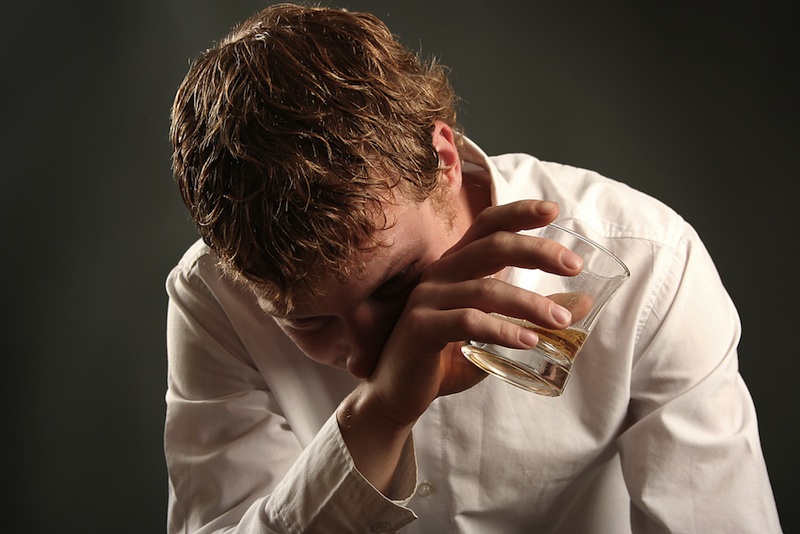Get Help With Alcohol Addiction
- Find meetings near you
- Discover online or in person meetings
- Get 24 hour information on addiction
Alcohol’s ranking as the most commonly abused addictive substance continues, and will likely persist considering how American culture has come to view drinking as an acceptable pastime. Albeit so, alcohol consumption does come with certain risks, especially when amounts consumed increase over time.
The near immediate “pick-me-up” experienced after taking a drink can be deceiving, leading a person to think continued drinking will prolong the relaxed and happy feelings brought on by the first drink. In actuality, once drinking reaches a point of excess, the alcohol-depression cycle kicks into gear. Being able to spot the signs of a depression-alcohol abuse cycle can help you make the decision to get needed treatment help before a full-blown addiction starts to take root.
Alcohol’s Effects on Mood
Chemically speaking, alcohol produces both stimulant and depressant effects, elevating a person’s mood when consumed in small amounts. When consumed in large quantities, alcohol acts as a depressant, slowing down the body’s chemical processes as well as “depressing” a person’s overall mood state.
People who consume large amounts of alcohol on a regular basis stand to experience repeated bouts of depression that increase in duration and frequency over time. In effect, the likelihood of developing a full-blown major depressive disorder increases the longer a person engages in alcohol abuse behaviors, according to the National Institute on Alcohol Abuse & Alcoholism.
Withdrawal Episodes
With ongoing alcohol abuse, the brain eventually becomes physically dependent on alcohol’s effects to function normally and regulate bodily processes. According to Columbia University, once physical dependence takes hold, drinkers start to experience withdrawal episodes in response to the brain’s diminishing functional capacity.
Withdrawal episodes entail a range of uncomfortable symptoms, including depression. Other withdrawal symptoms experienced include:
- Irritability
- Restlessness
- Problems sleeping
- Loss of appetite
- Headaches
- Agitation
- Problems concentrating
Withdrawal episodes play a pivotal role in driving the depression-alcohol abuse cycle as drinkers tend to keep drinking in an effort to ward off uncomfortable withdrawal symptoms.
Dual Diagnosis Conditions
When left untreated, alcohol’s effects on the brain create a state of chemical imbalance that sets the stage for psychological disorders to develop. Psychological disorders commonly associated with alcohol abuse include:
- Dementia
- Depression
- Anxiety-based disorders
- Psychosis-based disorders
Like alcohol, mental illness thrives within a chemically imbalanced brain. Consequently, the presence of a psychological disorder only works to aggravate alcohol abuse behaviors. Likewise, the effects of continued drinking worsen symptoms associated with mental illness. At this point, the depression-alcohol abuse cycle functions on a whole new level as the effects of psychological disorder add fuel to the fire.
From Alcohol Abuse to Alcohol Addiction
Considering the tight interrelationship between alcohol abuse and depression, it’s easy to see how a full-blown alcohol addiction can develop out of these conditions. Once a person starts experiencing frequent bouts of depression coupled with withdrawal episodes, the downward spiral into addiction becomes inevitable in the absence of needed treatment help.
If you or someone you known struggles with alcohol abuse and depression, it’s never too soon to consider your treatment options. If you have any questions about alcohol abuse or need help locating alcohol rehab programs in your area, please feel free to call our toll-free helpline
800-948-8417
Who Answers?
to speak with one of our phone counselors.

